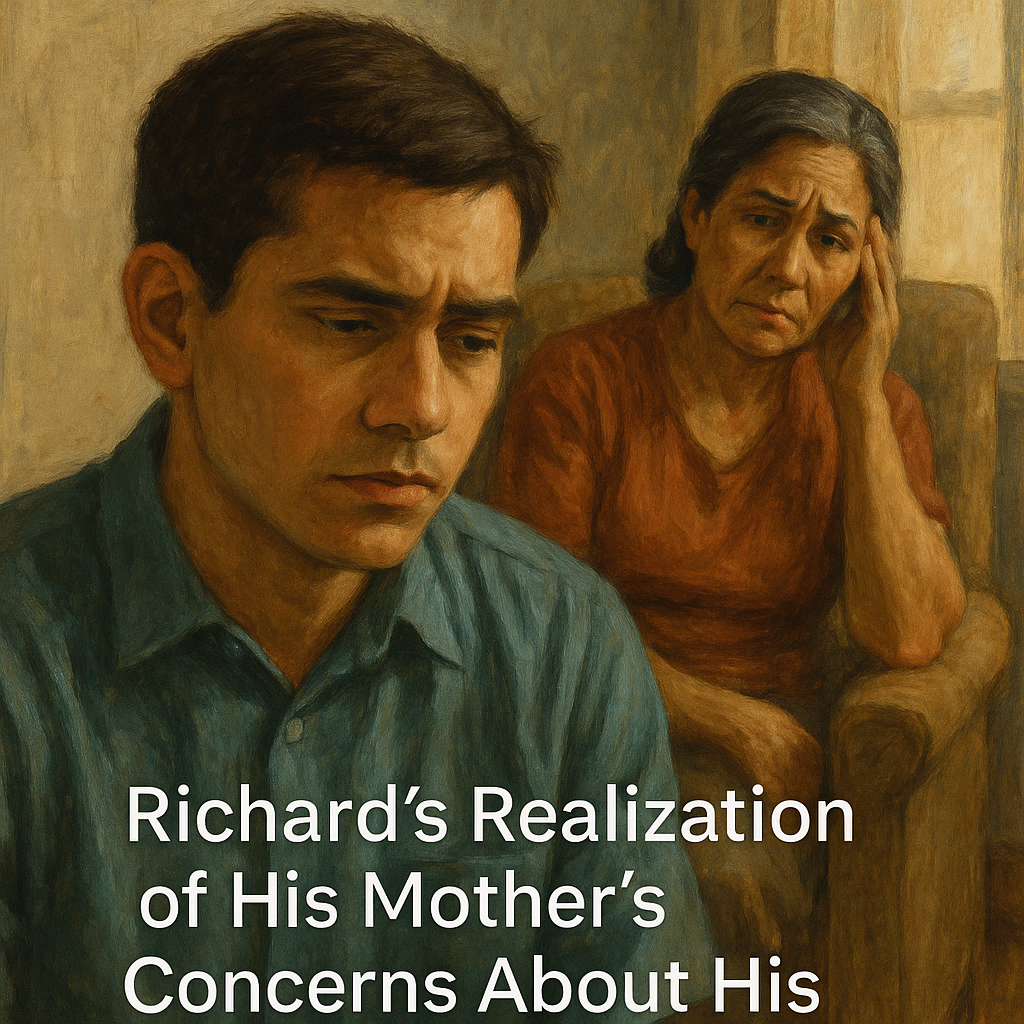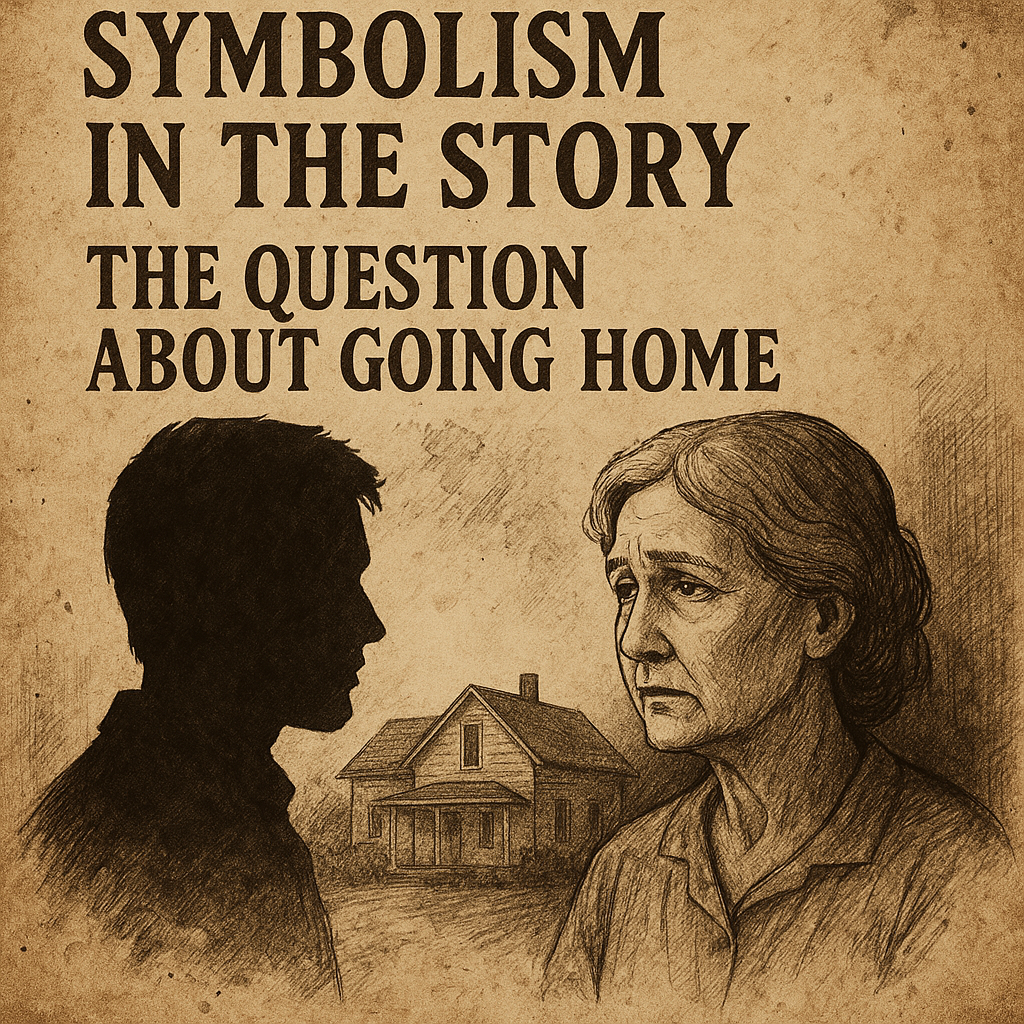Part 4 – Unveiling Family Dynamics Through Richard Rodriguez’s Narrative
Richard’s Growing Realization of His Mother’s Concerns
Richard Rodriguez’s narrative poignantly reveals his growing awareness of his mother’s concerns about his future and his transition into adulthood. Through his introspective storytelling, Rodriguez captures not only the weight of her disappointment but also the love beneath it—her fear that he has not yet met the milestones that, in her eyes, signify stability and maturity.
These milestones—securing a job, becoming financially independent, and establishing a home—are not merely practical goals but markers of respectability, self-reliance, and personal growth. For Rodriguez’s mother, they symbolize a successful passage from childhood into adulthood. When she compares Richard’s situation to that of his siblings, who appear to embody these traditional markers, her concern deepens.
This contrast awakens Richard to the reality of her expectations. Through her quiet questions, subtle expressions, and emotional weight, he comes to understand that her disappointment is not just about the present moment but about the fear that he is drifting from the path she hoped he would take. Her concerns, born from love and sacrifice, linger as both guidance and burden.
Richard’s Understanding of Family Dynamics and Disappointment
Acknowledging his mother’s disappointment becomes a pivotal moment in Rodriguez’s narrative. It marks a shift toward empathy and maturity as he realizes that her concerns are not condemnation but manifestations of love, fear, and hope for his well-being.
This acknowledgment has several layers. On one level, it deepens his emotional intelligence—he begins to recognize not only his own insecurities but also the emotional experience of his mother. On another level, it forces him to confront his own self-doubt, reframing her disappointment not as judgment of his worth but as a reflection of her aspirations for his potential.
By understanding her perspective, Rodriguez also begins to grasp how maternal disappointment reverberates throughout the family. It colors relationships, influences communication, and creates unspoken comparisons. His self-awareness grows as he realizes that his own choices and struggles contribute to the family’s emotional fabric. This understanding is a crucial step toward adulthood: taking responsibility, not only for his path but for how it shapes the family dynamic.
Through this lens, Rodriguez presents disappointment as complex—neither purely negative nor wholly destructive, but a mixture of concern, love, and silent pressure that reshapes both him and his family.
Experiencing the Weight of Familial Expectations and Parental Pressure
Rodriguez’s story captures the universal struggle of navigating familial expectations. These expectations, grounded in cultural norms and parental sacrifice, serve both as motivators and burdens. For Richard, they create a constant tension: the desire to honor his family’s sacrifices while striving to define his own path.
This dual pressure intensifies when measured against his siblings’ accomplishments. Their achievements reinforce his mother’s benchmarks for success, heightening his own sense of inadequacy. At times, this silent comparison fosters doubt, guilt, and a nagging feeling of having fallen short.
Yet Rodriguez also acknowledges the responsibility he feels as a son. His actions, he realizes, are not just personal—they reflect his family’s legacy and the sacrifices made on his behalf. This recognition brings both stress and resilience. It motivates him to push forward but also burdens him with the constant fear of disappointing those he loves most.
Through his reflective storytelling, Rodriguez lays bare the emotional toll of these dynamics. But he also offers insight into how such pressures, though painful, can become catalysts for growth, empathy, and maturity.
Overcoming the Sense of Letting Down His Family Through Growth and Maturity
Rodriguez’s narrative ultimately becomes one of transformation. By reflecting deeply on his mother’s concerns, he begins to redefine success on his own terms. This redefinition does not dismiss his mother’s hopes but integrates them into a broader, more personal vision of fulfillment.
Instead of chasing only external markers, he learns to value the alignment of his ambitions with his own passions and values. This shift enables him to embrace growth without losing himself. It also opens space for dialogue, allowing him to share his perspective with his family and to cultivate mutual understanding rather than silent tension.
In doing so, Rodriguez bridges the gap between obligation and authenticity. He finds a way to honor his mother’s values while carving out a life that reflects his individuality. This reconciliation embodies the essence of maturity: the ability to hold both personal freedom and familial responsibility in balance.
His story reminds readers that while parental disappointment can feel overwhelming, it can also inspire resilience. By confronting the weight of expectations, embracing empathy, and persisting with determination, Rodriguez demonstrates how personal growth can transform feelings of inadequacy into strength and self-acceptance.
Poetic Bipolar Mind: Reflections on Expectations and Growth
The themes in Rodriguez’s narrative echo the heart of Poetic Bipolar Mind. Here, the quiet weight of expectation, the shadows of comparison, and the longing for personal authenticity all find expression in poetry and reflection. Just as Rodriguez unpacks the meaning behind his mother’s disappointment, PBM seeks to uncover the hidden layers of love, pressure, and resilience that shape family life.
Through verse and essay, Poetic Bipolar Mind gives voice to the silent burdens carried across generations. It explores the dualities of expectation and freedom, fear and growth, disappointment and hope. In doing so, it transforms the personal into the universal—an archive of lived experience where readers can see their own struggles mirrored and validated.
Rodriguez’s realization that his mother’s concerns stem from love resonates deeply with PBM’s mission: to find meaning in pain, to transform silence into testimony, and to honor the emotional truths that shape our paths. His story, like the work within PBM, demonstrates that disappointment is not the end of love but one of its most complex expressions—and that growth is forged in navigating its weight.





Leave a Reply